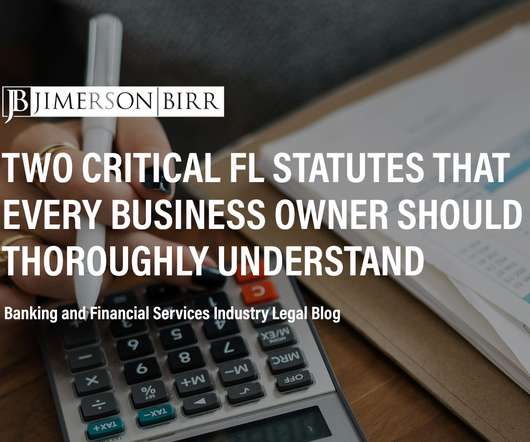Foreclosure Suit Without Request for Deficiency Judgment Is Not “Debt Collection” Under FDCPA, Ninth Circuit Holds
Troutman Sanders
JULY 28, 2020
Does a judicial foreclosure action constitute “debt collection activity” under the Fair Debt Collection Practices Act (“FDCPA”)? The borrower then filed an action in federal court, claiming that an assortment of alleged misrepresentations in the foreclosure case constituted violations of the FDCPA.





















Let's personalize your content